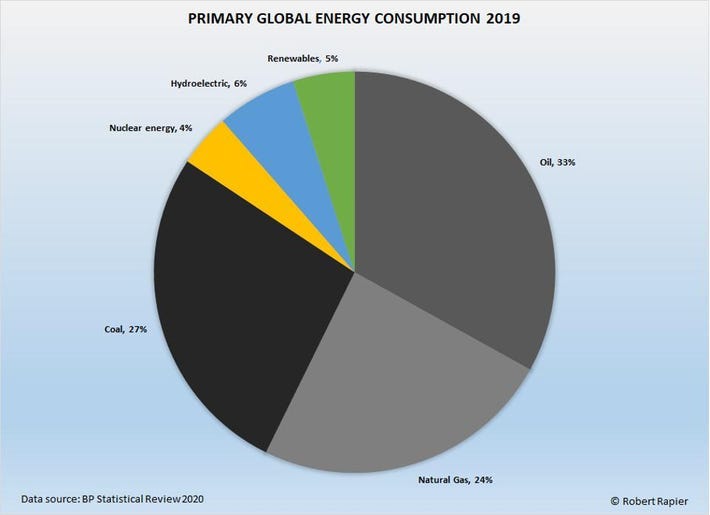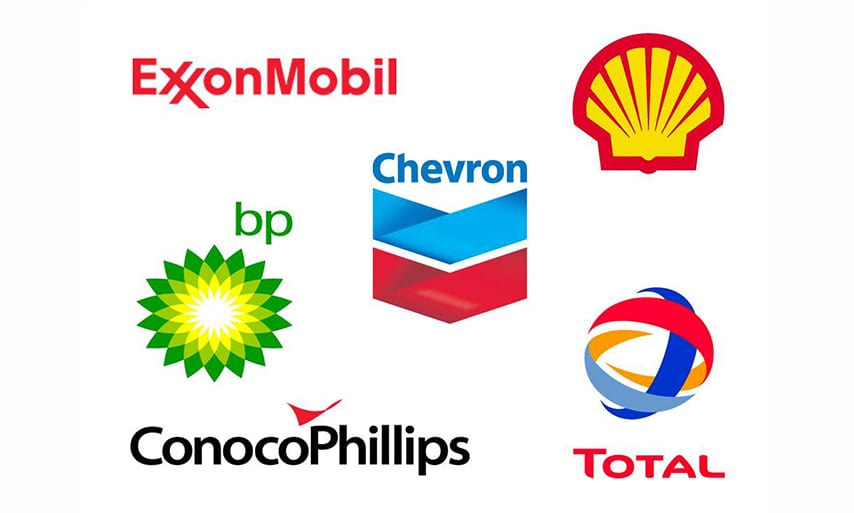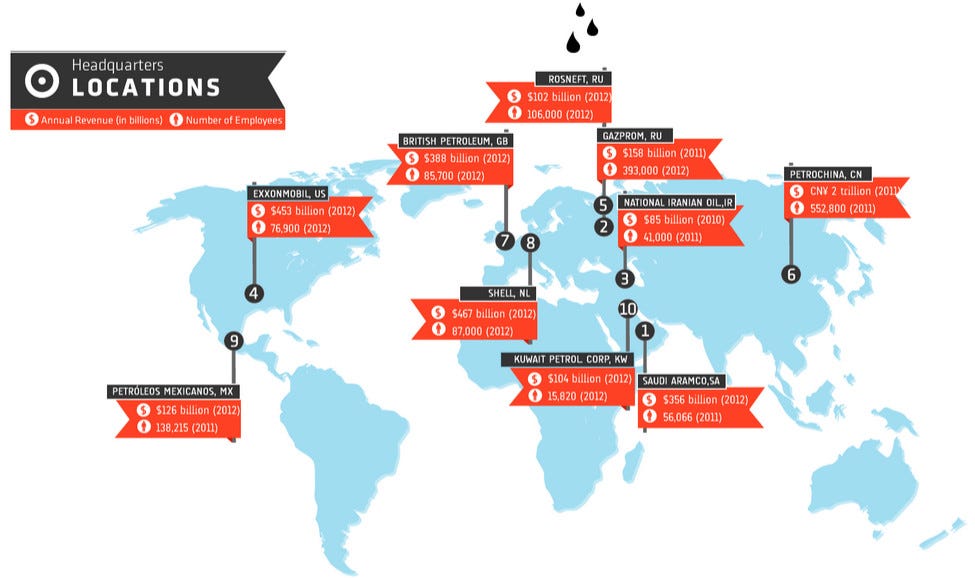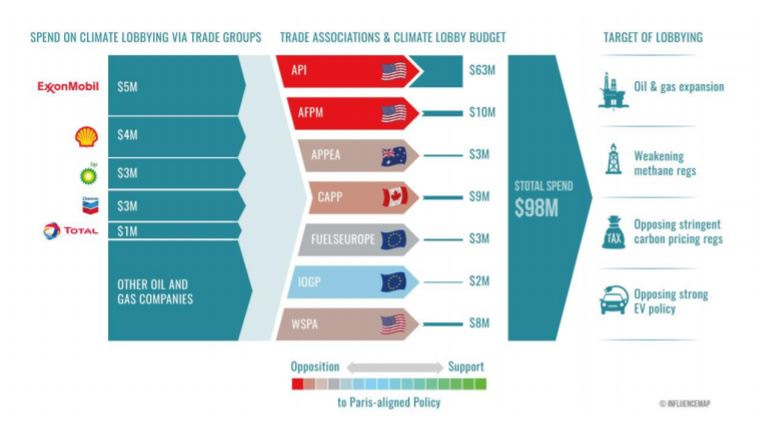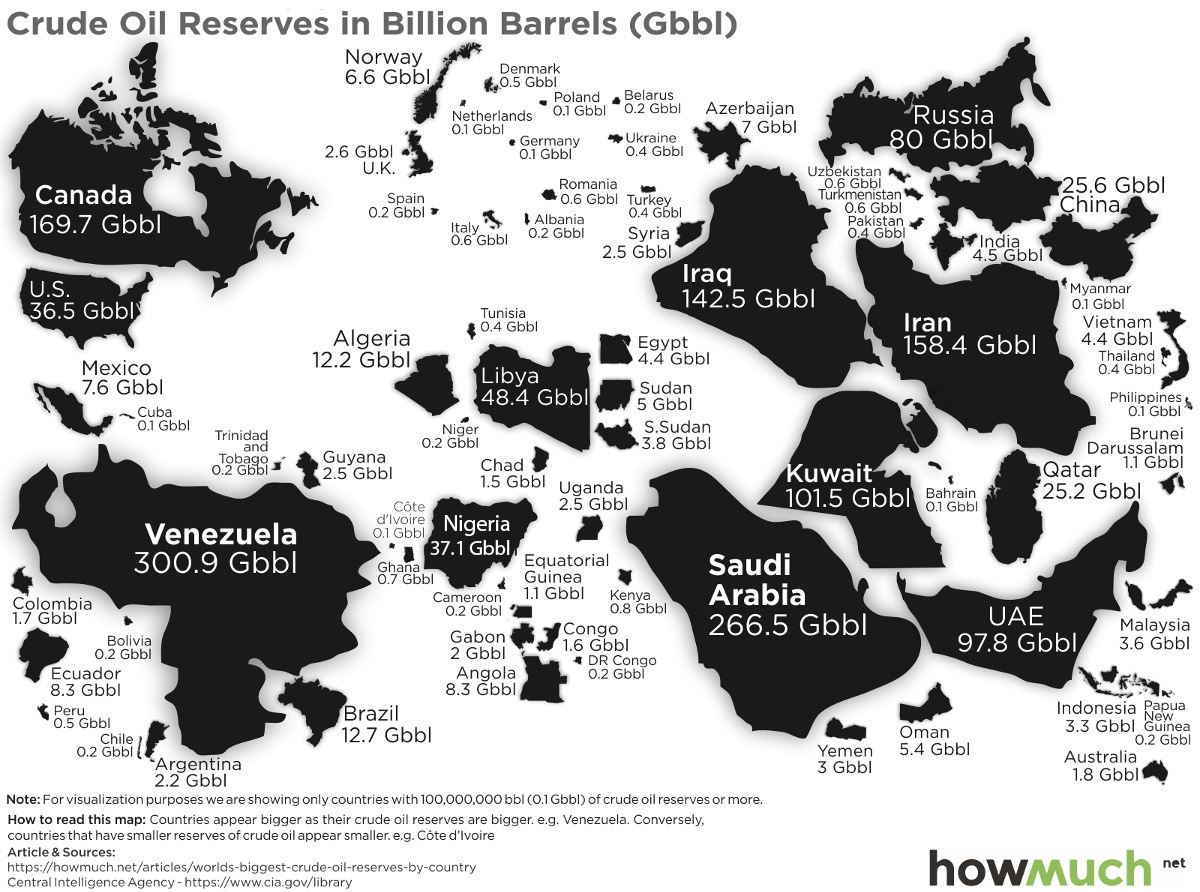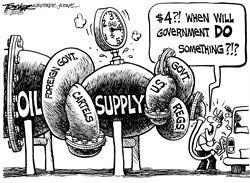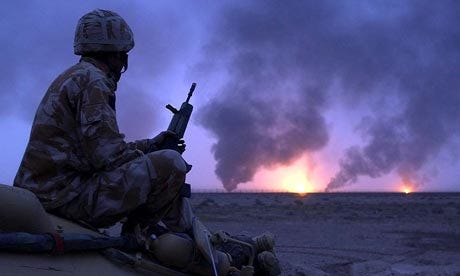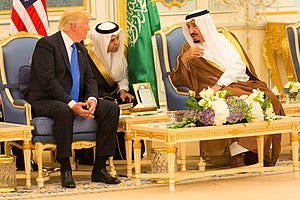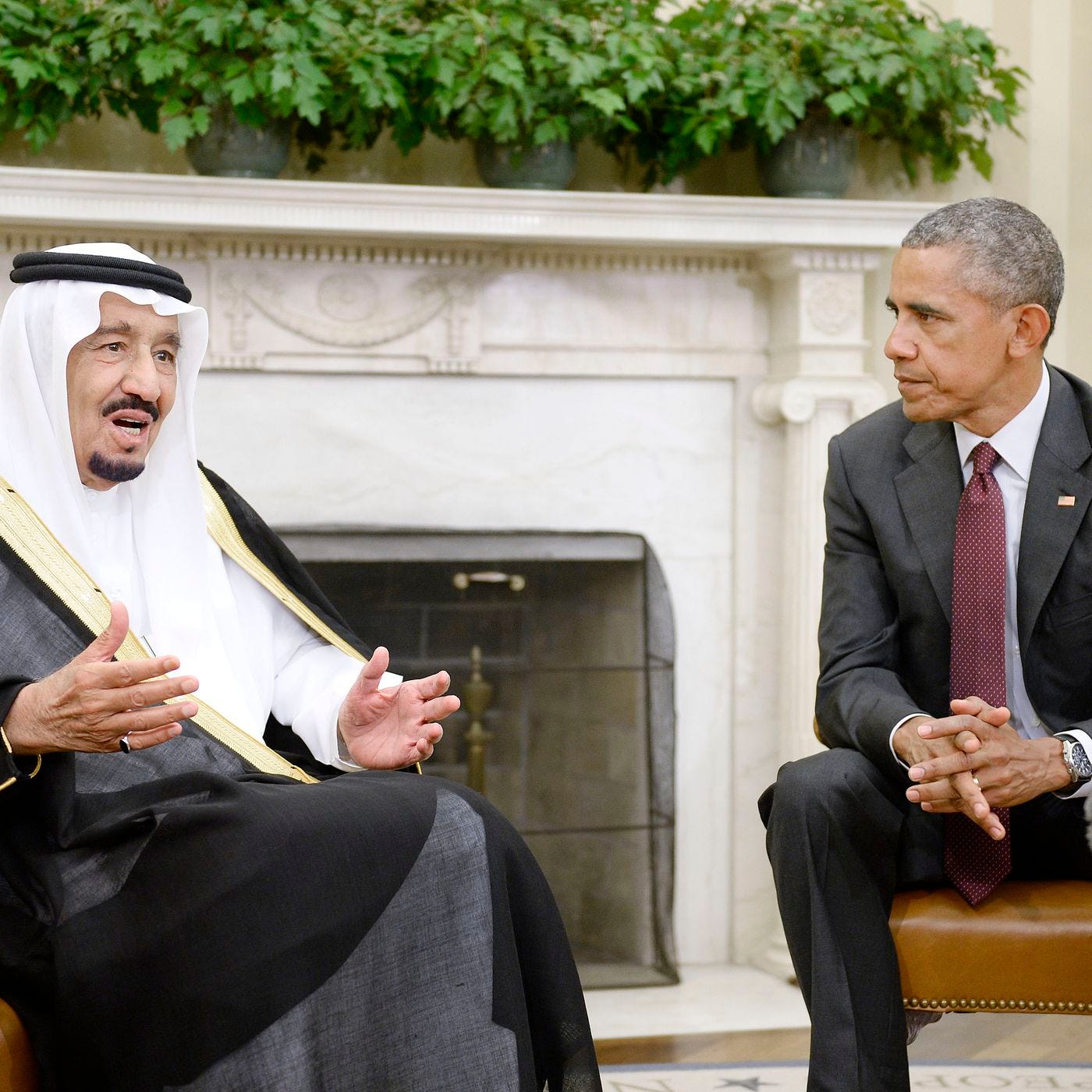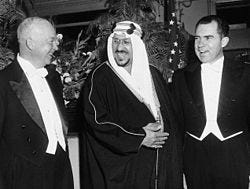Big Oil, OPEC+, Resource Wars & Greenwashing
The world's biggest cartels & how oil fuels countless conflicts
[TL;DR We’re hooked on fossil fuels, let’s cut the habit]
As I covered in my blog post about the global energy crisis, energy is essential to the fabric of our society. Energy demand and the industries that supply it are a major driver of the global economy. Currently fossil fuels are still the biggest contributor in meeting this demand for energy.
Fossil fuels are also the basis of the plastics industry, synthetic fabrics industry, and other oil derived chemical use, often in industrial settings. As you can see, oil and other hydrocarbons make up the mode of how we live in the 21st century.
Big Oil Cartel
Big oil is compromised of historically significant international oil companies dating back to the early 20th century. They are sometimes referred to as the “Seven Sisters” and historically exerted considerable influence over global oil supply. Preceding the 1970s these companies controlled about 85% of the world’s oil reserves. However, as countries like Saudi Arabia and Iran nationalized holdings of major domestic oil companies, the cartel lost control over the large reserves; now being reduced to now controlling around 6% of global oil reserves.
Lobbying Groups
While Big Oil no longer holds the same amount of indomitable power, they still hold influence in pockets all over the world, especially the US. Utilizing legal, questionable in ethics, methods they employ capital in lobbying interests. Lobbying is essentially a fancy form of bribing, but hey what do I know?
OPEC+ Cartel
OPEC (Organization of the Petroleum Exporting Countries) is compromised of 13 core members: Algeria, Angola, Republic of the Congo, Equatorial Guinea, Gabon, Iran, Iraq, Kuwait, Libya, Nigeria, Saudia Arabia, United Arab Emirates, and Venezuela. OPEC+ includes 11 additional countries: Azerbaijan, Bahrain, Brunei, Kazakhstan, Malaysia, Mexico, Oman, the Philippines, Russia, South Sudan, and Sudan. Collectively these countries control 81.5% of the world’s proven oil reserves. This gives the collective an ability to influence global oil prices; beating out the historically powerful “Seven Sisters.” Nonetheless, Big Oil does still exert some amount of influence through their control of oil drilling, extraction, and various other technologies.
Out of all these members Saudi Arabia is the most dominant player. Saudi Aramco, formerly Arabian-American Oil Company, is a “publicly” traded company that has a market capitalization of US$2 trillion (Nov 2022). If Tesla continues to crash Aramco will become the largest company in the world.
Venezuela could have been the top dog in oil, but due to severe corruption and what is now essentially a failed state, the oil wealth of the country has been squandered.
Canada, a non OPEC country, could have also been an extremely dominant player in the global oil industry, but due to domestic pushback against pipelines and the inherent difficulty of extracting tar sand oil there has been little progress in this area.
Resource Wars
Due to our extreme dependence on oil, the resource has become heavily politicized. Since the early 20th century nations have fought to establish power through the capitalization of oil, domestic or foreign. The Cold War, notably, has caused an immense list of proxy wars across continents. The US and democratic allies in an attempt to stem communism in oil rich, therefore powerful, nations, has historically supported democratic/oil interest regimes changes and gone as far as to supply munitions, as well as training. All in all, you could definitely say it is THE topic of contention between and in countries during modern times.
Syria 1949
Mosaddeq & the Shah
The Suez Crisis
Six-Day War & Black September
Iran-Iraq War
Kuwait & The Gulf War
US-Saudi Relations & Arms Deal
Due to the economically quintessential and political nature of oil, the US has held very close relations with Saudi Arabia. The history of this dates back to 1933 when diplomatic relations were first established. In 1951, the Mutual Defense Assistance Agreement was formalized. As recently as of 2015, the Obama administration provided logistical and intelligence support to Saudi in their military interventions in Yemen. In 2017, the Trump administration announced a US$115 billion arms deal providing tanks, combat ships, and missile defence systems. Despite, unfaithful behaviour from Saudi Arabia and a list of awful controversies, the US remains a close ally of Saudi.
Postface: The Middle East is not the only region of the world torn apart by the Cold War and oil politics. Venezuela/South America is another notable victim. These wars wage on tearing apart families, communities, and nations, causing incalculable trauma and lost potential. Oil companies, on the other hand, profit during this entire process fueling the war machine.
Greenwashing
Deceptive marketing will try to convince you that the solution to plastic pollution lies in paper straws and recycled materials. However, it is abundantly clear that the solution is to prevent the problem before it ever exists. The best process is no process.
Bioplastics are a huge emerging industry where we can use bio-derived materials, often waste, that can behave like plastics in different applications from disposable utensils to packaging material. These bioplastics are completely biodegradable and don’t need to be arduously recycled. This is much more in balance with nature than the vicious cycle of traditional plastics or subpar paper alternatives; chopping down trees isn’t the most ecofriendly or economically efficient process.
This is a 2-parter. If you want to learn about all the ways we can switch to a more carbon/nature conscious economy read my next post!



